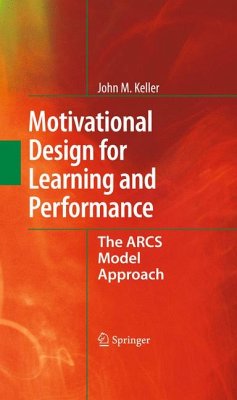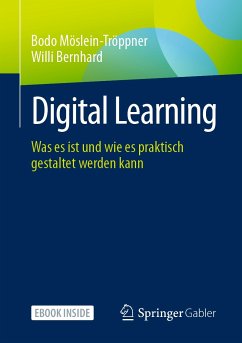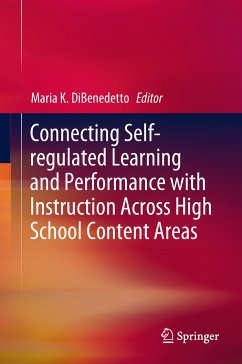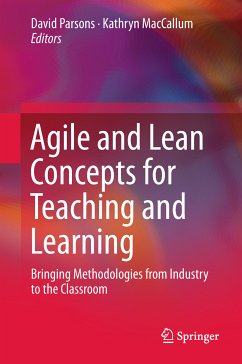
Motivational Design for Learning and Performance (eBook, PDF)
The ARCS Model Approach
Versandkostenfrei!
Sofort per Download lieferbar
136,95 €
inkl. MwSt.
Weitere Ausgaben:

PAYBACK Punkte
68 °P sammeln!
It is impossible to control another person's motivation. But much of the instructor's job involves stimulating learner motivation, and learning environments should ideally be designed toward this goal. Motivational Design for Learning and Performance introduces readers to the core concepts of motivation and motivational design and applies this knowledge to the design process in a systematic step-by-step format.The ARCS model-theoretically robust, rooted in best practices, and adaptable to a variety of practical uses-forms the basis of this problem-solving approach. Separate chapters cover each...
It is impossible to control another person's motivation. But much of the instructor's job involves stimulating learner motivation, and learning environments should ideally be designed toward this goal. Motivational Design for Learning and Performance introduces readers to the core concepts of motivation and motivational design and applies this knowledge to the design process in a systematic step-by-step format.
The ARCS model-theoretically robust, rooted in best practices, and adaptable to a variety of practical uses-forms the basis of this problem-solving approach. Separate chapters cover each component of the model-attention, relevance, confidence, and satisfaction-and offer strategies for promoting each one in learners. From there, the motivational design process is explained in detail, supplemented by real-world examples and ready-to-use worksheets. The methods are applied to traditional and alternative settings, including gifted classes, elementary grades, self-directed learning, and corporate training. And the book is geared toward the non-specialist reader, making it accessible to those without a psychology or teaching background.
With this guide, the reader learns how to:
Comprehensive and enlightening, Motivational Design for Learning and Performance furnishes an eminently practical body of knowledge to researchers and professionals in performance technology and instructional design as well as educational psychologists, teachers and trainers.
The ARCS model-theoretically robust, rooted in best practices, and adaptable to a variety of practical uses-forms the basis of this problem-solving approach. Separate chapters cover each component of the model-attention, relevance, confidence, and satisfaction-and offer strategies for promoting each one in learners. From there, the motivational design process is explained in detail, supplemented by real-world examples and ready-to-use worksheets. The methods are applied to traditional and alternative settings, including gifted classes, elementary grades, self-directed learning, and corporate training. And the book is geared toward the non-specialist reader, making it accessible to those without a psychology or teaching background.
With this guide, the reader learns how to:
- Identify motivation problems and goals
- Decide whether the environment or the learners need changing
- Generate attention, relevance, confidence, and satisfaction in learners
- Integrate motivational design and instructional design
- Select, develop, and evaluate motivational materials
- Plus a wealth of tables, worksheets, measures, and other valuable tools aid in the design process
Comprehensive and enlightening, Motivational Design for Learning and Performance furnishes an eminently practical body of knowledge to researchers and professionals in performance technology and instructional design as well as educational psychologists, teachers and trainers.
Dieser Download kann aus rechtlichen Gründen nur mit Rechnungsadresse in A, B, BG, CY, CZ, D, DK, EW, E, FIN, F, GR, HR, H, IRL, I, LT, L, LR, M, NL, PL, P, R, S, SLO, SK ausgeliefert werden.













